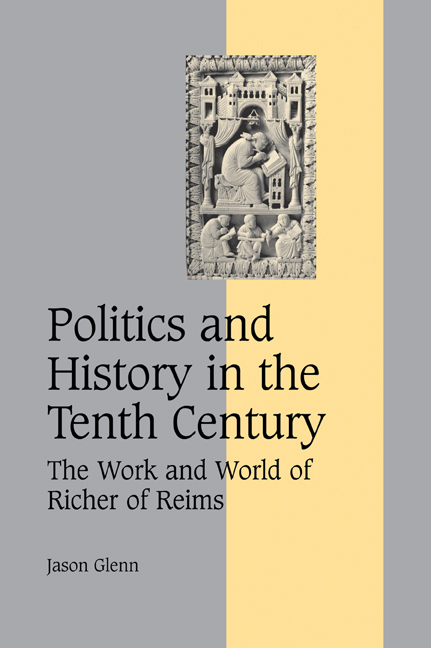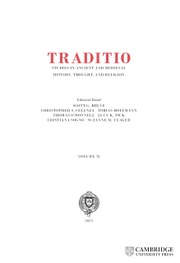Flodoard of Rheims and the Writing of History in the Tenth Century
Flodoard of Rheims (893/4–966) is one of the tenth century's most intriguing but neglected historians. His works are essential sources for the emergence of the West Frankish and Ottonian kingdoms in the tumultuous decades following the collapse of the Carolingian empire in 888. Yet although Flodoard is a crucial narrative voice from this period, his works have seldom been considered in the context of the evolving circumstances of his turbulent career or his literary aims. This important new study is the first to analyse and synthesise Flodoard's entire output, suggesting that his writings about Rheims, contemporary politics and the Christian past have until now been taken at face value without regard for his own intentions or priorities, and therefore have been misunderstood. Edward Roberts' re-evaluation of the relationship between political participation, historical understanding and authorial individuality casts important new light on the political and cultural history of tenth-century Europe.
- The first major study in English of one of the tenth century's most important authors, making this interesting but obscure author accessible to a wider audience
- Provides a vital point of reference for Flodoard's writings and the development of historical writing in medieval Europe
- Brings new literary and cultural perspectives to the history of western Europe following the break-up of the Carolingian empire
Reviews & endorsements
‘… this is a richly detailed book that constantly rewards the reader with new insights.’ Julia Barrow, The Journal of Ecclesiastical History
‘… a fine study that will be of stimulating interest to scholars of tenth-century West Francia and beyond, and to those interested in medieval history-writing more generally.’ Bernard Gowers, The Medieval Review
‘… an eminently readable, well-structured, and convincing account of Flodoard’s life …’ Martina Hartmann, Speculum: A Journal of Medieval Studies
Product details
September 2019Adobe eBook Reader
9781108247238
0 pages
3 tables
This ISBN is for an eBook version which is distributed on our behalf by a third party.
Table of Contents
- Introduction: Flodoard of Rheims and his world
- 1. Flodoard, his archbishops and the struggle for Rheims
- 2. Narrative and history in the Annals
- 3. Institutional history and ecclesiastical property
- 4. History, poetry and intellectual life
- 5. Flodoard's age of miracles
- Conclusion: history and historiography in the tenth century.








.jpg)
.jpg)
